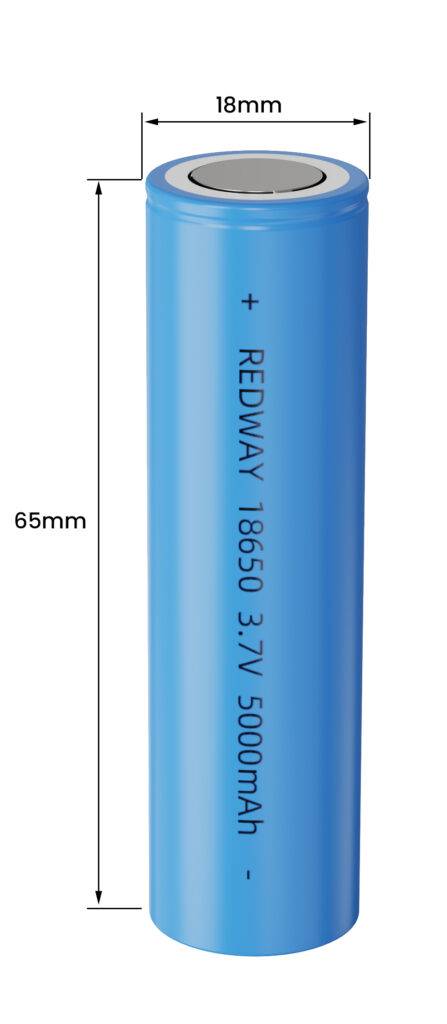Ternary polymer lithium battery
Ternary polymer lithium battery is a type of lithium battery based on polymer electrolytes, and it uses ternary cathode materials like lithium nickel cobalt manganese oxide (Li(NiCoMn)O2) or lithium nickel cobalt aluminum oxide.

#post_seo_title
18650 lithium battery
18650 lithium battery, on the other hand, is a very common lithium battery type where 18 represents the diameter (18mm), 65 represents the length (65mm), and 0 indicates it is cylindrical in shape.
Comparison between Lithium Polymer (LiPo) Batteries and 18650 Lithium-ion Batteries:
Lithium Polymer (LiPo) Batteries
| Advantage | Explaination |
| High Energy Density: | Lithium Polymer (LiPo) batteries have a high energy density, providing longer usage time. |
| High safety: | Relatively speaking, ternary polymer lithium batteries have a higher level of safety because they use solid-state polymer electrolytes, reducing the risk of fires and explosions. |
| Slim design: | Due to their thin form factor, they are suitable for devices with space constraints, such as smartphones and tablets |
.
18650 lithium-ion batteries
| Advantage | Explanation |
| Higher power density | 18650 lithium-ion batteries generally have a higher power density, providing greater discharge capabilities, making them suitable for devices with high power requirements, such as laptops and power tools. |
| Mature technology and market: | 18650 lithium-ion batteries have been around for a longer time, and the technology is relatively mature, offering a wider range of options in the market |
Which battery is better?
Which one is better depends on your specific needs. If you require high energy density, a slim design, and better safety, then the lithium polymer battery may be more suitable. If you need higher power density, greater discharge capacity, or you prioritize mature technology and market availability, then the 18650 lithium-ion battery may be the better choice.


